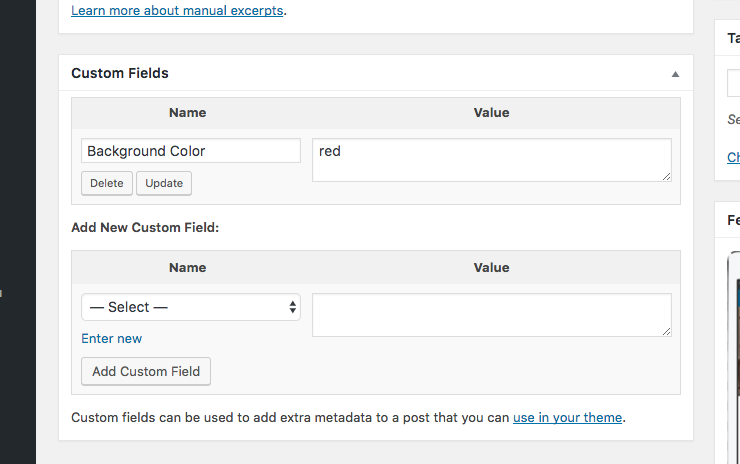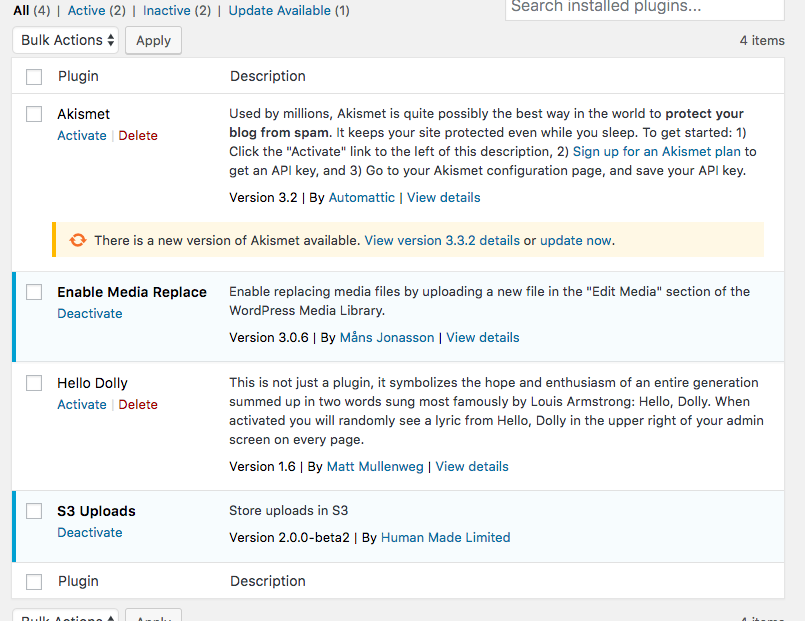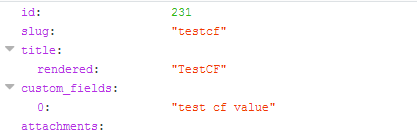I want to do this without using any sort of plugin since these are both core wordpress features (custom fields and the REST API). Here is the documentation for custom fields for reference:
https://codex.wordpress.org/Using_Custom_Fields
Here is a screenshot from my wordpress installation:
Here is what the API response for a post looks like currently:
{
"_links": {
"about": [
{
"href": "http://example.com/wp-json/wp/v2/types/post"
}
],
"author": [
{
"embeddable": true,
"href": "http://example.com/wp-json/wp/v2/users/1"
}
],
"collection": [
{
"href": "http://example.com/wp-json/wp/v2/posts"
}
],
"curies": [
{
"href": "https://api.w.org/{rel}",
"name": "wp",
"templated": true
}
],
"replies": [
{
"embeddable": true,
"href": "http://example.com/wp-json/wp/v2/comments?post=21"
}
],
"self": [
{
"href": "http://example.com/wp-json/wp/v2/posts/21"
}
],
"version-history": [
{
"href": "http://example.com/wp-json/wp/v2/posts/21/revisions"
}
],
"wp:attachment": [
{
"href": "http://example.com/wp-json/wp/v2/media?parent=21"
}
],
"wp:featuredmedia": [
{
"embeddable": true,
"href": "http://example.com/wp-json/wp/v2/media/23"
}
],
"wp:term": [
{
"embeddable": true,
"href": "http://example.com/wp-json/wp/v2/categories?post=21",
"taxonomy": "category"
},
{
"embeddable": true,
"href": "http://example.com/wp-json/wp/v2/tags?post=21",
"taxonomy": "post_tag"
}
]
},
"author": 1,
"categories": [
5,
4
],
"comment_status": "open",
"content": {
"protected": false,
"rendered": ""
},
"date": "2017-05-14T15:25:33",
"date_gmt": "2017-05-14T15:25:33",
"excerpt": {
"protected": false,
"rendered": ""
},
"featured_media": 23,
"format": "standard",
"guid": {
"rendered": "http://example.com/?p=21"
},
"id": 21,
"link": "http://example.com/2017/05/14/post/",
"meta": [],
"modified": "2017-05-15T18:17:34",
"modified_gmt": "2017-05-15T18:17:34",
"ping_status": "open",
"slug": "",
"sticky": false,
"tags": [],
"template": "",
"title": {
"rendered": ""
},
"type": "post"
}
In case it could be relevant, here are my active plugins:



